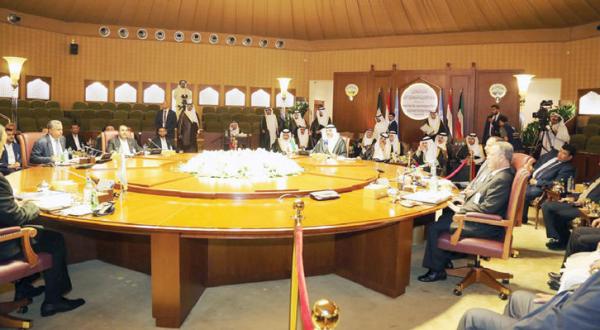Riyadh, Kuwait- Amidst tensed ambiance, talks between the Yemeni government and the rebels (Houthis and Saleh), have kicked off on Thursday in Kuwait after a three-day delay as warring parties traded accusations over truce breaches; thus, forcing the UN to intervene and put pressure on them to attend these talks that were supposed to begin on Monday, 18 April.
The delegation of Houthi representatives and their allies flew out of Sanaa and arrived to Kuwait yesterday late.
Acting Prime Minister and Foreign Minister Sheikh Sabah Khaled Al-Hamad Al-Sabah confirmed on the opening session that the UN-brokered Yemen’s peace negotiations are a “historical chance” to end the country’s conflict and stopping the bloodshed.
“We hope that Yemen’s disputed parties would be wise enough, and put the interest of Yemen and its people ahead of anything else during these negotiations in order to resolve the crisis,” Sheikh Sabah Al-Khaled added.
He urged all parties to take into consideration suffering of their brothers and sisters, and to try to avoid further destruction and displacement.
He called on the parties to contribute positively to the peace negotiations so as to reach a comprehensive solution aiming to save the country and maintain the region’s stability and security.
“Kuwait, which has been standing side by side with its brothers since decades, welcomes your purposeful efforts to end the conflict,” he said, expressing hope that the negotiations would succeed to reach peace, which will restore stability and security to Yemen, and will maintain its territorial integrity.
Sheikh Sabah Al-Khaled also expressed his gratitude to the role of the UN in backing these negotiations, represented in its envoy Ismael Ould Cheikh Ahmed.
He stressed the importance of cooperation with GCC member states in accordance
with the resolution issued during the 36th round of the summit, which called for holding an international conference for rebuilding Yemen in collaboration with the international community in order to “turn war into peace and destruction into development.”
“We realize the huge responsibility upon you to resolve the conflict and we are aware of your keenness on the interest of your country and its people through effective contributions to these negotiations,” he told the parties.
The minister conveyed greetings of HH Emir Sheikh Sabah Al-Ahmad Al-Jaber Al-Sabah to all participants, voicing hope the Emir got towards achieving the goals of the negotiations.
“The choice today is one of two options: a safe homeland that ensures security for all of its citizens… or remnants of a land whose sons die every day,” the U.N. Special Envoy to Yemen, Ismail Ould Cheikh Ahmed said in an opening speech.
The talks are expected to focus on creating a more inclusive government and restoring state authority over the country, which is now divided between the Houthis and Abd Rabbuh Mansur Hadi’s administration.
“The war has caused a major humanitarian crisis in Yemen as more than 6,200 were killed, some 35,000 people have been wounded and more than 2.5 million people have been displaced,” he explained.
“The consultations should provide a strong foundation for a new political consensus, to help Yemen achieve the stability and security that its people deserve and its future requires,” Ould Cheikh added. “The path to peace may be difficult but I believe that it is clearly in reach if all parties engage in good faith.”
He also said that in order to provide a suitable environment for the talks and enable expanded humanitarian assistance, a cessation of hostilities came into force at midnight on 10 April, and despite some serious violations in various areas, reports indicate that there has been a noticeable improvement in the security situation.
Praising the constant work of the De-escalation and Coordination Committee (DCC) and the Local De-escalation Committees, he urged the delegations to work together to overcome their differences and to develop compromise solutions based on the framework of Security Council resolution 2216, which calls for the Houthis
to withdraw from areas they seized since 2014 and hand heavy weapons back to the government.
“Differences in opinion are permissible but there are always middle grounds,” he said. “Gaps are plentiful but constructive ideas can address them. Challenges may hinder us but solutions are available. Divisions exist but they can be overcome. Most regimes in the world are built upon the diversity of their political spectrum which is turned into a positive force.”
“It is impossible to turn the clock backwards and change the past but we can look forward to the future and improve the present,” he stressed. “Peace is a choice, make it your choice,” he added.
On the other hand, Turkey announced on Thursday it had frozen assets of former Yemeni president Ali Abdullah Saleh, in line with a decision by the U.N. Security Council.
All assets belonging to Saleh and his son Ahmed Ali Abdullah Saleh in Turkish banks and other financial institutions “are frozen until February 26, 2017″, according to an announcement in the government gazette.
